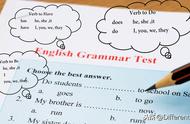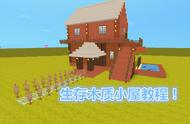一、语音知识
or
/ɔː/
pork, fork, corn, horse, fort, lord, port
二、词汇
running(跑步) basketball(篮球) ping-pong(乒乓球)
friend(朋友) father(父亲) interesting(有趣的)
often(经常) late(晚) swim(游泳)
三、固定搭配
play basketball
打篮球
all my friends
我所有的朋友
play ping-pong
打乒乓球
from home to school
从家到学校
go swimming
去游泳
get up
起床
with my friends
和我的朋友们
live with
和......生活在一起
after school
放学后
jumping rope
跳绳
be good at
擅长
play cricket
打板球
roller skating
滑旱冰
go to the park
去公园
go running
去跑步
live in a fort
住在一个城堡里
want to be
想成为
play football
踢足球
play baseball
打棒球
twice a week
一周两次
四、知识点
v play 球类名称
v be good at 名词 / 动词-ing
五、常用表达
1. What about ...?
......怎么样?
2. Great!
太棒了!
3. Here you are.
给你。
4. No problem!
没问题!
5. OK.
好的。
6. That’s a problem!
那是一个问题!
六、重点句型
1. 询问对方是否经常做某事:
-- Do you often 动词原形?
-- Yes, I / we do.
No, I / we don’t.
eg: -- Do you often play baseball?
-- Yes, I do.
2. 询问对方是否擅长某事:
-- Are you good at 动词-ing?
-- Yes, I am. / Yes, we are.
No, I am not. / No, we aren’t.
eg: -- Are you good at singing?
-- Yes, I am.
人教新起点(一起)四年级Unit 2 知识汇总
一、语音知识
er
/ə/
worker, teacher, ruler, tiger, dancer, sister, water
二、词汇
always(总是) step(踏,踩) paint (颜料)
evening(傍晚;黄昏) dirty(脏的) their(他们的)
house(房子) poor(可怜的;贫穷的) hope(希望) so(那么) Saturday(星期六) near(靠近) day(白天)
三、固定搭配
visit one’s grandparents
看望(外)祖父母
go to a drawing club
去绘画俱乐部
climb a hill
爬山
play computer games
玩电脑游戏
pick fruit
采摘水果
go for a walk
去散步
go fishing
钓鱼
go skiing
去滑雪
go to the cinema
看电影
have fun
玩得开心
on the weekend
在周末
go rock climbing
去攀岩
四、知识点
be good at 名词 / 动词-ing (擅长......)
talk with sb (和......交谈)
五、常用表达
1. Here you are.
给你。
2. Let’s start!
让我们开始吧!
3. What about you?
你呢?
六、重点句型
如何询问对方在周末做什么:
-What do you do on the weekend?
-I / We often 动词原形 其他.
eg: -What do you do on the weekend?
-I often go to the drawing club.
人教新起点(一起)四年级上册Unit 3 知识汇总
一、词汇
名词:garden(花园) gate(大门) film(电影) theatre(剧场) earth (地球;世界) transportation (交通) park (公园) snow (雪)
其他:usually(通常) come(来) enjoy(欣赏)
二、习惯搭配
go to school
去上学
have fun
玩得开心
meeting place
集合地点
go to the park
去公园
go to work
去上班
go to the cinema
去看电影
by boat
乘小船
by ship
乘轮船
by car
乘小汽车
by taxi
乘出租车
by bike
骑自行车
by school bus
乘校车
by subway
乘地铁
by plane
乘飞机
by train
乘火车
by bus
乘公交车
on foot
步行
by sled
乘雪橇
in the sun
在太阳下
in the desert
在沙漠里
walk a long time
走很长时间
on the weekend
在周末
三、惯用表达
What about you?
你呢?
Sorry.
对不起。
搭
四、重点句型
如何询问出行方式的句型:
-How do you usually go to 地方?
-I usually go to 地方 交通方式.
eg: 1. -How do you usually go to school?
-I usually go to school on foot.
2. -How do you usually go to the park?
-I usually go to the park by bus.

春天的性质。美丽的风景。绿草和树木
,













